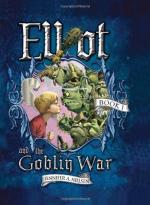Shortly afterwards a great event happened in Lowwood, which made the deepest impression on Robert’s mind. His father still being out of work, had sent a letter to Robert Smillie, who was then beginning to be heard of more and more in mining circles. In the letter Geordie explained, to the best of his ability, the local circumstances, and he mentioned his own case of persecution, and his agitation for the starting of a union. Smillie sent word in reply that he would come in two days, and Geordie enthusiastically set to work to organize a meeting, going round every house in the district, telling the folks that Smillie was coming, and exhorting them to turn out and hear him.
“I dinna think it’ll do any guid,” said old Tam Smith, when Geordie called upon him. “It’s a’ richt talkin’ about a union, but the mair ye fecht the mair ye’re oppressed. The bosses ha’e the siller, an’ they can ay buy the brains to serve them.”
Geordie made no reply, for he knew from experience that it was only too true.
“Just look at young Jamie Soutar,” continued Tam. “He is yin o’ the cleverest men i’ the country. He wrocht wi’ me as a laddie when he went into the pit, an’ noo’ he’s travelin’ manager for that big company doon the west country, an’ I’m telt he’s organizin’ an’ advocatin’ the formin’ o’ what he calls a Coal Combine.”
“That’s a’ richt, Tam. I admit it a’, though I dinna jist ken what a Coal Combine means; but I ken that Bob Smillie is makin’ great wark wi’ the union he has formed. I ken he has gotten rises in wages for a’ the men who ha’e joined, an’ that he is advocatin’ an eight hours day. If that can be done doon there, it can be done here; for there’s naebody has ony mair need o’ a eight hours day than miners.”
“Oh, I’ll turn oot a’ richt at the meetin’,” said Tam, who was always credited with seeing farther than most of his workmates, “an’ I’ll join the union, too, if it’s formed; but ye’ll see if ye live lang enough that the union’ll no’ be a’ ye think it. The ither side will organize to bate ye every time.” And with this encouraging prophecy, Geordie went on to the next house.
“No, I’m no’ comin’ to nae meetin’. I want naethin’ to dae wi’ yer unions. I can get on weel enough without them,” curtly said Dan Sellars, the inmate. He was what Geordie somewhat expressively called a “belly-crawler,” a talebearer, and one who drank and gambled along with Walker, Fleming, Robertson and a few others.
“Man, it’ll no’ do muckle guid,” said another, “ye mind hoo’ big Geordie Ritchie ran awa’ wi’ the money o’ the last union we started? It’ll gi’e a wheen bigmouths a guid job and an easy time. That’s a’ it will do.”
“Oh, ay,” answered Sinclair, “but that’s no’ to say that the union’ll ay fail. Folks are no’ a’ Geordie Ritchies, an’ they’re no’ a’ bigmouths either. We’re bound to succeed if we care to be solid thegither.”
“I’ll come to the meetin’, Geordie, although I was sayin’ that, but I’ll no’ promise to join yer union,” was the answer, and Sinclair had to be content with that.




